14. The Pusher Trilogy
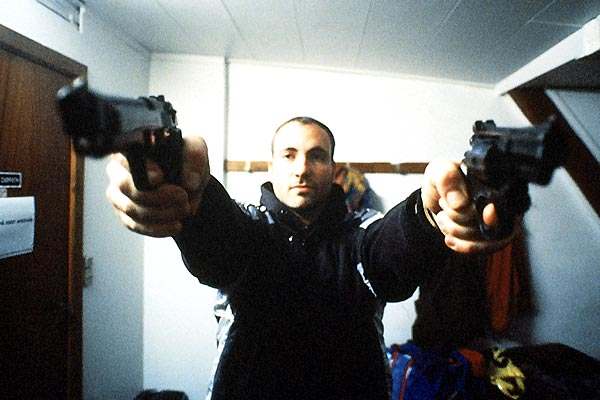
Before Nicolas Winding Refn made Ryan Gosling beat people up in the streets of Los Angeles (in “Drive”), he made Kim Bodnia beat people up in the streets of Copenhagen. “Pusher” was Refn’s debut film (which is in itself quite impressive), it became one of the most popular movies among Danish cinemagoers in 1996, and it launched the careers of several of the people involved (it was also the debut for Mads Mikkelsen).
Refn followed up with the sequels “Pusher II: With Blood on My Hands”, and “Pusher III – Angel of Death”, and both became quite popular as well. The trilogy explores the criminal underworld of Copenhagen with a special focus on drug dealing, as the titles might imply, and all three deal with the problems a character is faced with if he gets involved with drugs (apart from addiction).
What makes the entire trilogy interesting is its shifting main character and point of view. The protagonist of the second movie is the character who was almost comic relief in the first movie, and the protagonist in third movie is the antagonist in the first. This is done to highlight a world where no one is good or evil, where everyone just fights for his or her own success or life.
13. Adam’s Apples (Adams æbler)
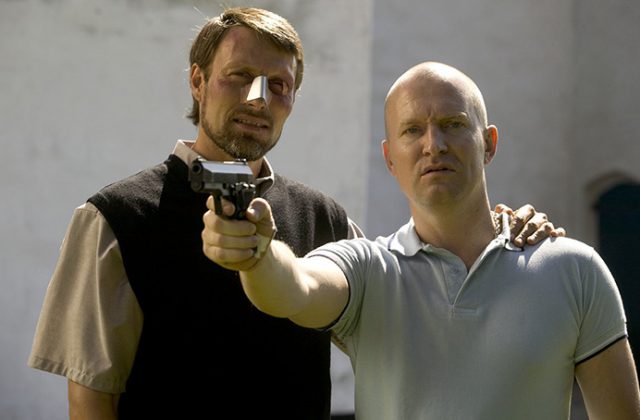
It is rare that religion plays a large part in modern Danish movies, so a movie about a priest who believes unconditionally in the good of mankind is refreshing. “Adam’s Apples” was directed by Anders Thomas Jensen, who continues his style of dark humor in this black comedy from 2005. However, just classifying it as a black comedy is unfair, since it contains positive messages about faith and the responsibility the individual carries for its own life.
The plot centres on Adam (Ulrich Thomsen), a neo-Nazi who is sent to a village church as a part of his rehabilitation program. The church is run by the overly positive priest Ivan (Mads Mikkelsen), who perceives every problem as a test from the devil.
According to Ivan, the alcoholic rapist Gunnar (Nicolas Bro), and the gas station robber Khalid (Ali Kazim), who also live in the priest’s community, are both free of their misdeeds, even though they are clearly not. He claims that his wife did not commit suicide, she just confused the sleeping with candy, and his son is not paralysed, he is just suffering from a cold, which is why he is so quiet.
Adam tries to make the priest realize the truth, and through his studies of The Book of Job, he succeeds. However, once the priest’s faith is broken, Adam realizes the positive impact Ivan had at the community.
“Adam’s Apples” is heavy on the satire, and is, to a certain extent, a brilliant yet unconventional study of the concepts of ‘good’ and ‘evil’.
12. Nightwatch (Nattevagten)
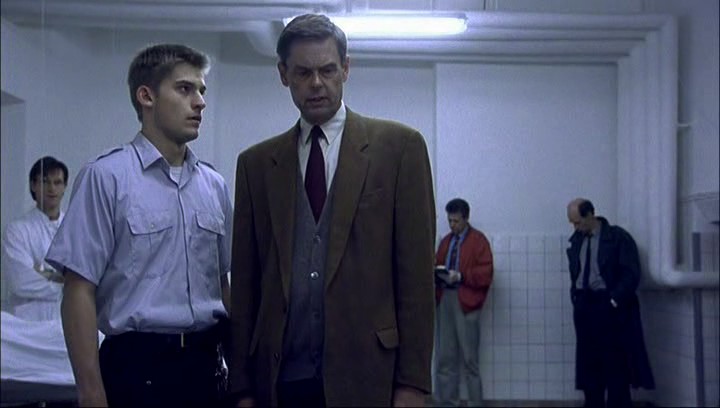
From World War I until the mid-90s, Danish cinema suffered from a depression. The golden age of Danish cinema had ended with the war, and for years, the most popular movies were without any real plot, conflict, and real world connections. Of course, a few good movies were released in that period (especially the ones by Dreyer).
However, most of the movies had plots consisting of an unrealistically happy vagabond, traveling from farm to farm (“Vagabonderne på Bakkegården”), or the residents of an apartment building, who had a model train in the basement that they could not tell their wives about (“Støv på hjernen”).
After years of stale stories, Ole Bornedal shocked audiences with the thriller/horror movie “Nightwatch”. The plot is rather simple, centering on law student Martin (Nikolaj Coster-Waldau), who takes a job at a morgue. He unwillingly gets involved with a serial killer who likes to scalp his victims, and the police detective (Ulf Pilgaard) who is trying to catch him.
Ole Bornedal was a pioneer of the new wave in Danish cinema, and through “Nightwatch”, he changed it forever.
11. The Bench (Bænken)
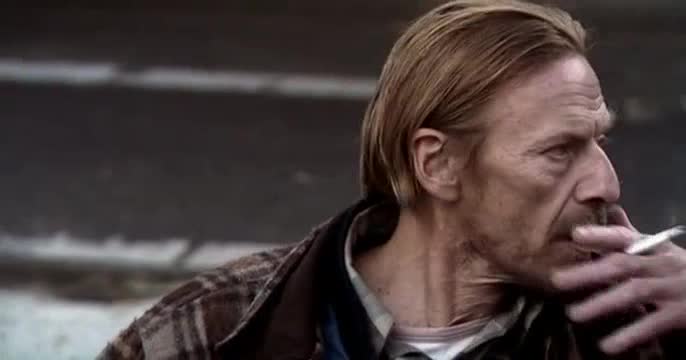
“The Bench” is Per Fly’s directorial debut, and the first installment in his Denmark trilogy. The trilogy focuses on the different social classes in Denmark; “The Bench” specifically focuses on the lower class. The plot centers on Kaj (Jesper Christensen), an alcoholic whose primary interest is sitting on a bench drinking with his friends.
However, his life has not always been like that; he used to be a cook for Simon Spies himself. Kaj is slowly getting his life under control after being fired from his job. One day, his daughter, who he abandoned after the mother died, moves into the neighborhood without knowing he is her father, and his life slowly spirals out of control again.
After social realism had despaired from Danish cinema after the 1970s, Fly managed to bring some back with “The Bench”, and later with the other installments in the trilogy (“The Inheritance” and “Manslaughter”).
10. After the Wedding (Efter brylluppet)
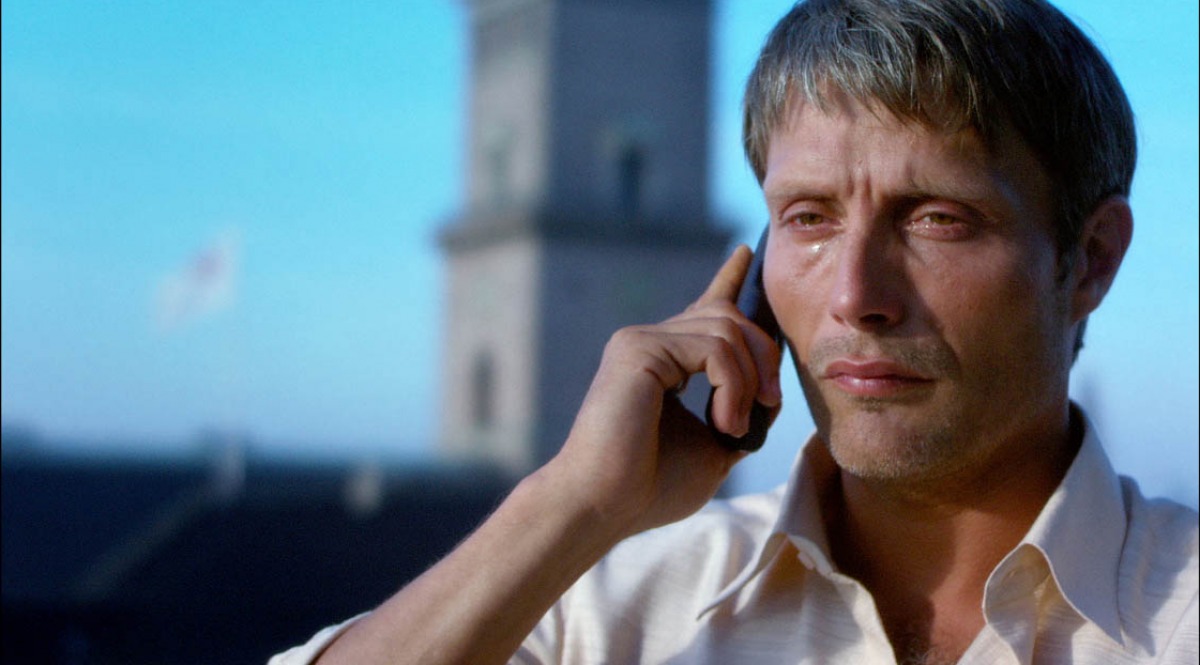
This is another nominee for the Academy Award for Best Foreign Language Film (2007), this time by Susanne Bier. The movie stars Mads Mikkelsen as Jakob, an orphanage manager who works in India, who is invited to his ex-girlfriend’s daughter’s wedding, oblivious to the fact that she is his daughter.
Jörgen (Rolf Lassgård), the husband of Jakob’s ex-girlfriend, offers a large donation to the orphanage where Jakob works, provided he stays in Denmark. Jakob is reluctant at first, but once it is revealed that Jörgen’s motivation is the fact that he is terminally ill from cancer, Jakob agrees.
“After the Wedding” was a hit with both critics and audiences alike, and even Time Magazine critic Richard Schickel raised the drama as the #4 on his Top 10 Best Movies of 2007.
9. The Idiots (Idioterne)
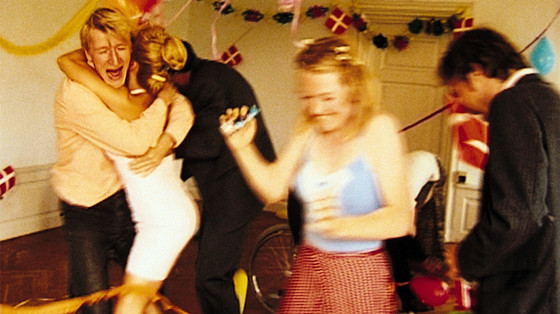
No list of Danish movies would be complete without a movie by Lars von Trier, who is one of the most visionary directors of Denmark. Alongside Thomas Vinterberg, he created the Dogme 95 movement, and “The Idiots” is the second official Dogme 95 movie (also known as “Dogme #2”). The movie stars Bodil Jørgensen, Jens Albinus, Anne Louise Hassing, Troels Lyby and Nikolaj Lie Kaas, among others, as a group of people who live out their ‘Inner Idiots’ by acting like what they refer to as “retards”.
As it often is with a von Trier movie, it garnered a lot of controversy, due to its explicit sexual content and the offensive portrayals of “retards”. In spite of that, “The Idiots” is regarded as a great Dogme 95 movie, and it found a spot in the “Danish Culture Canon” (a list of different artworks described as “essential to the Danish cultural heritage”).
8. Pelle the Conqueror (Pelle Erobreren)
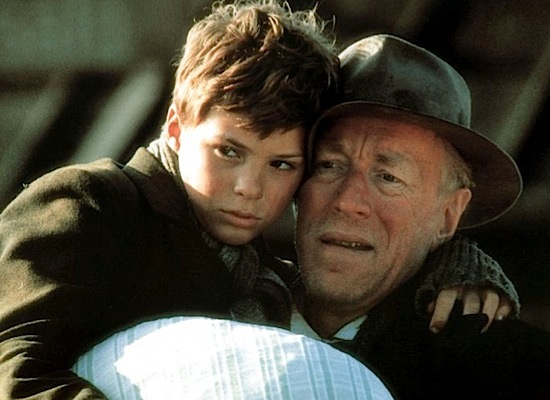
The only movie on this list to be described as a Danish-Swedish historical drama, “Pelle the Conqueror” was directed by Danish filmmaker Bille August, produced by Per Holst, and stars Swedish actor Max Von Sydow, and Danish actor Pelle Hvenegaard. The plot centers on two Swedes who immigrated from Sweden to the Danish island of Bornholm. The two are eventually hired at a farm, and yet they are treated very poorly, and they both fight for a better life than what they left.
Without a doubt, the best part about the movie is the characters. The leads are so exceptionally well portrayed and acted that the viewer can feel exactly what they feel. Even the young Pelle Hvenegaard, who was 11 at the time of filming, turns in a convincingly great performance.
Furthermore, “Pelle the Conqueror” was acclaimed by audiences and critics alike, and it won the Golden Palm at the Cannes Film Festival (1988), the Academy Award for Best Foreign Language Film (1989), and Max Von Sydow was nominated for Best Actor in a Leading Role.